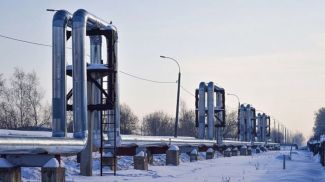BEIJING, 17 October (BelTA - China Daily). - Anren is a small association of hamlets in Jiande, Zhejiang province that may have big implications for the future of the country as a pilot zone for common prosperity.
It was established in June 2021, about a month after the central government designated Zhejiang as an experimental zone for common prosperity, which is a plan to reduce inequalities throughout the country.
It consists of the eponymous Anren village and five other less well-off nearby villages. All six settlements share resources and develop jointly. They have consolidated their 250 hectares of land to enable comprehensive planning and development, forming an integrated association of hamlets known as a lianheti in Chinese.
For example, they have jointly developed a nearly 27-hectare strawberry farm for lease with 4 hectares contracted to low-income farmers, who receive technical and sales support from better-off farmers.
And Japan-based coating manufacturer Nippon Paint has opened a factory in Anren village, offering job opportunities to residents from the other villages as well.
Jin Yu returned from a city where he worked in e-commerce to his home village of Houshan to take a job at the paint plant that pays over 10,000 yuan ($1,400) a month.
The factory is expected to employ more than 300 people when it becomes fully operational.
And the lianheti is also developing homestays, a mini industrial park and other businesses.
"To achieve common prosperity, fundamentally, we need to make the cake bigger, and, at the same time, share it fairly," said Li Shi, dean of Zhejiang University's Institute for Common Prosperity and Development.
Anren lianheti has designed programs to distribute wealth more equitably.
Anren village built the houses and allocated them to people in need from any village in the lianheti. Over 200 households moved in.
One such opportunity enabled 70-year-old Wang Changfa to relocate from an old house high up on a mountainside to buy a new 368-square-meter house at the precipice's foot for about 790,000 yuan.
"This makes it easier for children to go to school and for the elderly to see doctors," Wang said.
The lianheti has also built such public facilities as a senior care center with equal access to all residents. Retirees ages 60 to 89 pay no more than 5 yuan for each meal at the center, and people older than 90 dine for free. The canteen is partly funded by regular donations from local enterprises and charitable villagers.
Anren lianheti offers a vivid specimen of what China is working to build since it has eliminated extreme poverty.
Li pointed out that China's economy has grown in the decades since it adopted the reform and opening-up, through giving greater play to the market and encouraging entrepreneurship.
Now, the country is maintaining these practices while exploring how to share growth's benefits more fairly.
He said China should invest more in basic public services in rural areas to bring them on par with their urban counterparts. And low-income people should receive education and training to enjoy better opportunities.
Nicholas Hope, former director of the World Bank's China program, also emphasized the role of education in achieving common prosperity.
"Education, particularly that of the rural poor, is an essential part of efforts ensuring against relapse," he said.
Hope is optimistic about China's common prosperity pursuit.
In a scant two generations, the CPC can make a country that's by any definition desperately poor into a country that's moderately prosperous, he said.
That should give everybody confidence that China can move into the era of common prosperity, he said.













